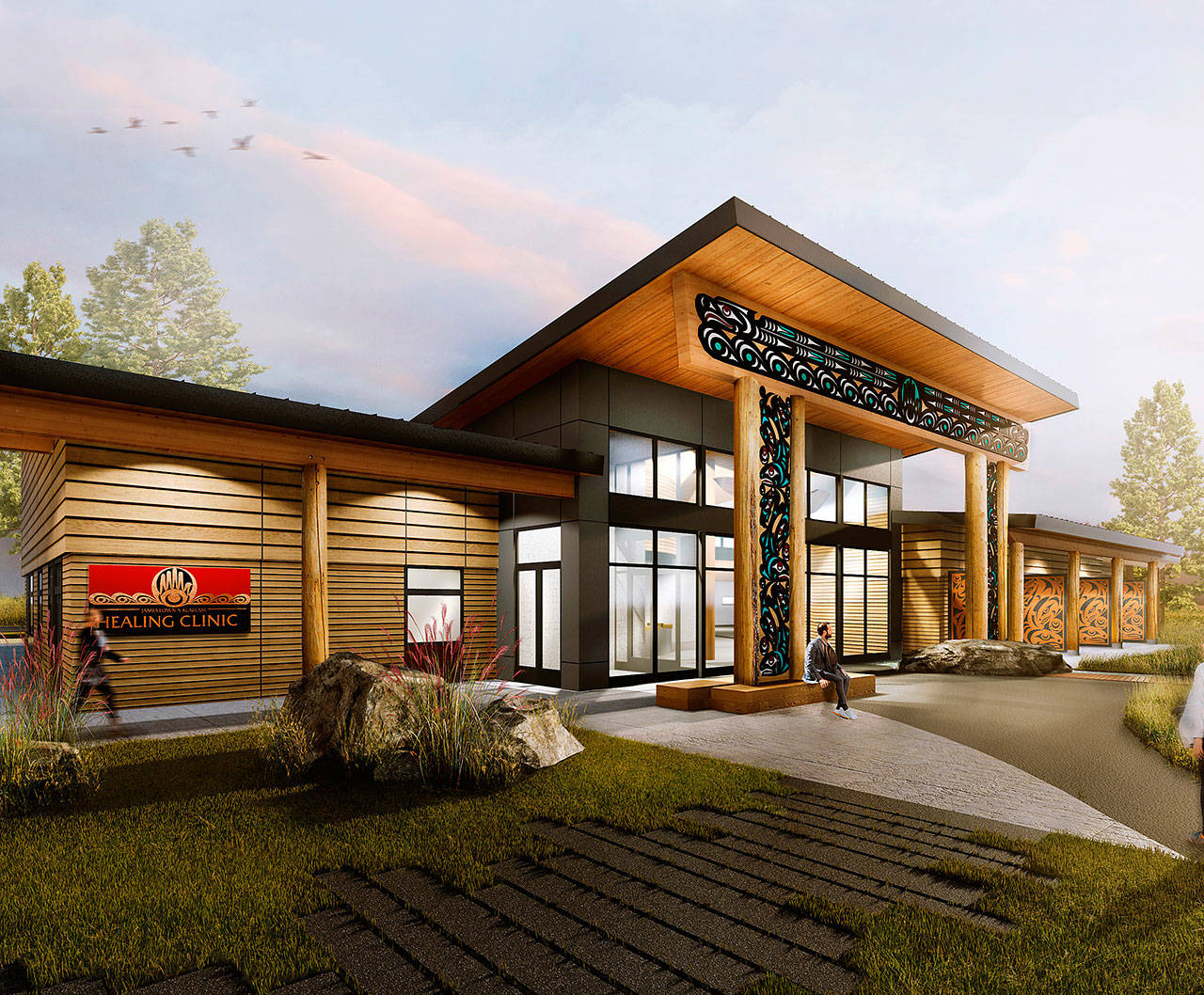Parties looking to block the Jamestown S’Klallam Tribe’s proposed medication-assisted treatment (MAT) clinic saw their challenge denied by a Clallam County Superior Court this week.
Judge Brent Basden on June 24 denied a temporary restraining order and injunction for the tribe’s planned 16,806-square-foot facility.
Basden said at a June 19 hearing he wouldn’t make a decision from the bench because he wanted to consider further the documents submitted just prior to the hearing.
Representatives with Save Our Sequim (SOS) and Jon Gibson, owner of Parkwood Manufactured Housing Community, filed an injunction on May 5, with Basden allowing the Jamestown S’Klallam Tribe attorney Andy Murphy to intervene last Friday for the city during the hearing.
Five days later, Basden noted that the City of Sequim’s decisions regarding the application fall within the provisions of the Land Use Petition Act (LUPA), and that “because LUPA applies to this case the court concludes that (the) Plaintiffs do not have a clear legal and equitable right to an injunction at this stage of the proceedings.”
Basden writes, “A judicial review at this time is premature because a final determination has not been made ‘by a local jurisdiction’s body or office of the highest level of authority to make that determination,’” Basden wrote, citing LUPA language.
“All parties agree that the City has hired a hearing examiner to review the Plaintiffs’ challenges. In that administrative process, the Plaintiffs will be able to present evidence and argue why they believe the decision is incorrect,” Basden noted in his decision.
“During that process, the City and Tribe’s actions are on hold until a final decision is made. Once a decision is made, either party may file a LUPA petition and seek court review. At that time either party may seek a stay during the judicial review period.
“This project is still in the application stage. That process must be allowed to be completed. Once completed, judicial review can be sought. LUPA is meant to avoid judicial review of uncompleted processes.”
Basden also detailed what recourse SOS and Gibson have: “Their remedy is to pursue and appeal in accordance with the City’s administrative review process and then appeal that final land use decision to the superior court if they are dissatisfied. Neither the party nor the courts should presume a decision will be adverse or favorable before the final decision is made.”
SOS attorney Michael A. Spence and Gibson’s attorney Michael McLaughlin reiterated their representatives’ stances at the injunction hearing on June 19 that they support drug addition treatment, but say the city wrongfully placed the clinic under an A-2 process — where staff approves the project — instead of a quasi-judicial, C-2 city council-made decision.
The attorneys also say the application should be classified as an “essential public facility” and that the project holds “broad public interest” under city code, among other issues with the proposal.
Sequim’s Director of Community Development Barry Berezowsky approved the MAT application on May 15, leading to the final appeal process that closed on June 5.
City staff haven’t set a date with Sequim’s new hearing examiner Phil Olbrechts to make a decision on six appeals against the clinic’s application.



